Our work
EDRi is the biggest European network defending rights and freedoms online. We work to to challenge private and state actors who abuse their power to control or manipulate the public. We do so by advocating for robust and enforced laws, informing and mobilising people, promoting a healthy and accountable technology market, and building a movement of organisations and individuals committed to digital rights and freedoms in a connected world.
Filter resources
-

US companies to implement better privacy for website browsing
Important changes are underway for web users, as browser manufacturers are set to put domain name system (DNS) look ups in the hands of more predictable, trusted and transparent sources.
Read more
-

Censoring Wikipedia in Turkey is censoring our collective knowledge
2018 will be a pivotal year for the internet.
Read more
-
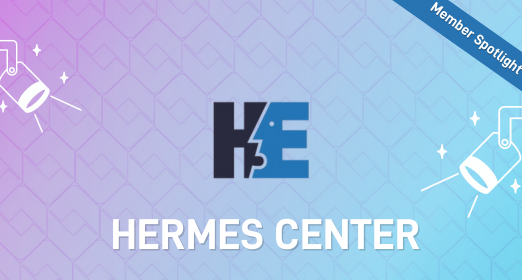
Member in the Spotlight: Hermes Center
Hermes Center for Transparency and Digital Human Rights is an Italian civil rights organisation focusing on the promotion and development of the awareness and attention to transparency, accountability, freedom of speech online and, more in general, the protection of rights and personal freedom in a connected world.
Read more
-

Smart Borders: the challenges remain a year after its adoption
After the initial rejection of the Smart Borders package in 2013, the European Parliament voted again on 25 October 2017 to finally adopt it, including the Entry/Exit System (EES) and amendments to integrate it into the Schengen Borders Code.
Read more
-

ENDitorial: The fake fight against fake news
The new danger is no longer yellow, but red once more: fake news. It helped getting Trump elected. It paved the highway to Brexit. Even local European elections are not safe. The greatest danger to our democracy in modern times must be fought by all possible means.
Read more
-
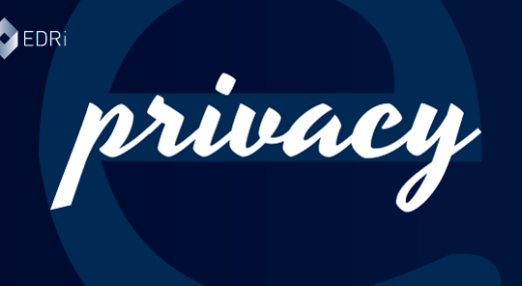
EU Council considers undermining ePrivacy
On 19 October 2017, the European Parliament’s LIBE Committee adopted its report on the ePrivacy Regulation.
Read more
-
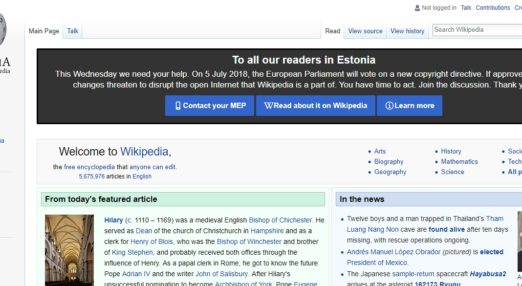
The EU gets another opportunity to improve copyright rules
The EU gets another opportunity to improve a copyright proposal that would have threatened the open web.
Read more
-

New Protocol on cybercrime: a recipe for human rights abuse?
From 11 to 13 July 2018, the Electronic Frontier Foundation (EFF) and European Digital Rights (EDRi) took part in the Octopus Conference 2018 at the Council of Europe together with Access Now to present the views of a global coalition of civil society groups on the negotiations of more than 60 countries on access to […]
Read more
-
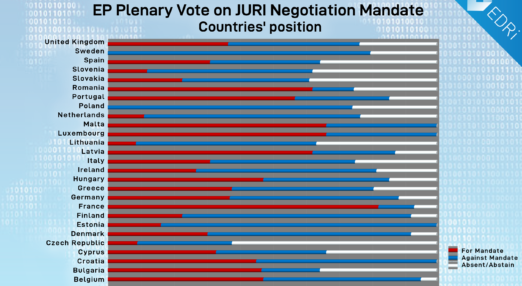
EP Plenary on the Copyright Directive – Who voted what?
Many of you have been wondering who voted for and who voted against JURI's mandate to enter into negotiations with the EU Council on the Copyright Directive on 5 July.
Read more
-
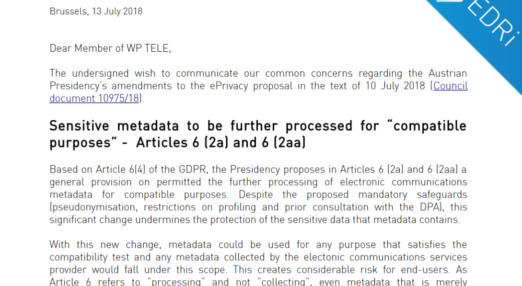
Civil society calls for the protection of privacy in ePrivacy
On the 13th of July, EDRi, together with Privacy International, IT-Politisk Forening and Access Now sent a letter to the TELE Working Party of the EU Council regarding the dangers for privacy protections associated with the latest proposals brought forward by the Austrian Council Presidency. The letter comments the developments and argues that such changes […]
Read more
-

German police raids privacy group’s premises
In the early morning of 20 June 2018, German police forces raided several locations – the headquarters of the privacy group Zwiebelfreunde, and the homes of three of its board members, as well as the association OpenLab, which is part of EDRi member Chaos Computer Club (CCC) in Augsburg.
Read more
-
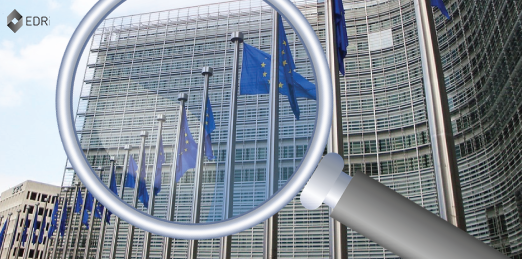
ENDitorial: The Commission’s new filtering adventure
In September 2017, the European Commission adopted a “Communication” on illegal content online, full of demands that somebody – but not them and not the Member States – should do something to fight illegal content online. With this move, the European Commission managed to generate some good publicity for itself.
Read more
